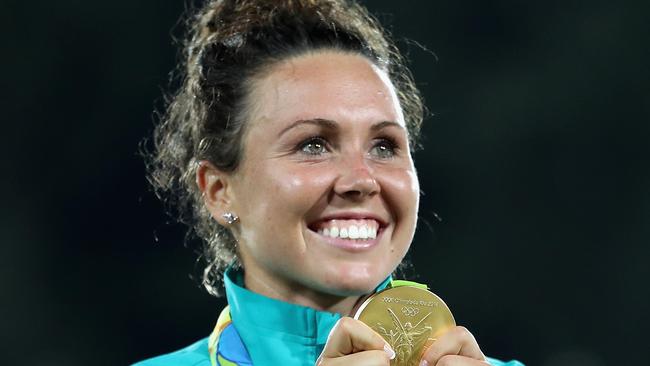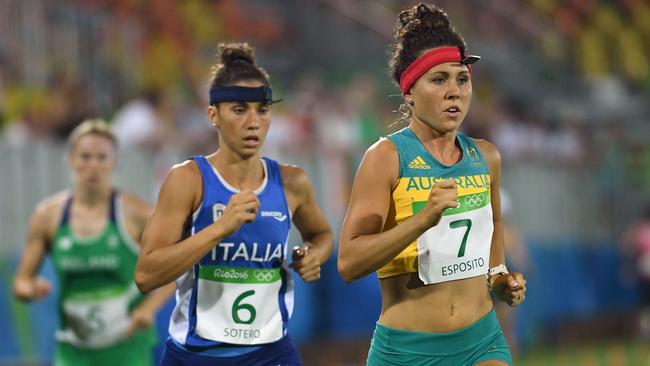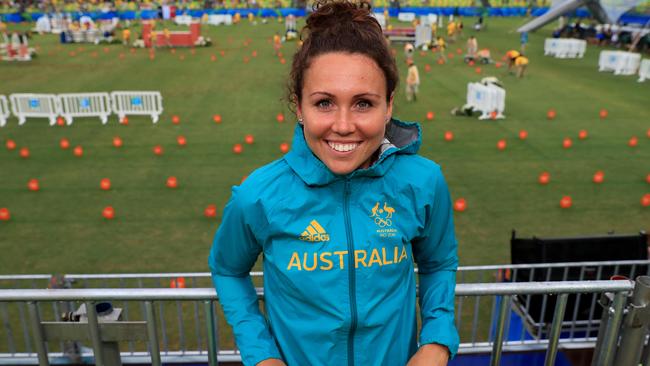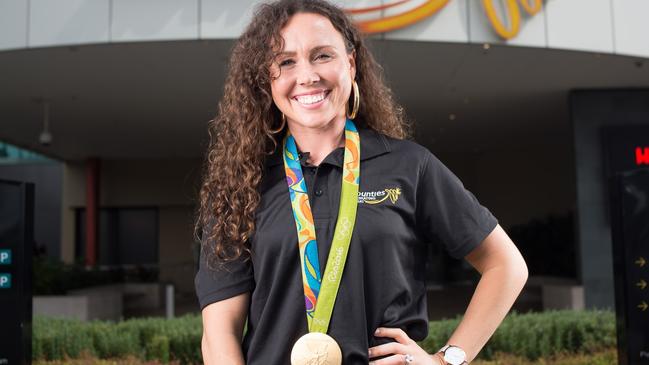Rio golden girl Chloe Esposito is struggling to attract sponsors and relying on support from her family to compete
SHE was one of the feel good stories of the Rio Olympics. But that has all changed for golden girl Chloe Esposito, who has been snubbed by corporate Australia as she continues to chase her dreams.

Sport
Don't miss out on the headlines from Sport. Followed categories will be added to My News.
EVEN with her million-dollar smile, an infectious personality and a feel-good story that read like a Hollywood script, Chloe Esposito couldn’t believe how quickly her luck had changed after she won Australia’s first gold medal in modern pentathlon at the 2016 Rio Olympics.
After years of struggling to make ends meet trying to achieve her sporting dream in one of the quirkiest Olympics sports, she was suddenly hot property.
In the days and weeks after she burst into the national sporting spotlight with her inspiring victory in Brazil, everybody wanted a piece of her: the Australian public, the media and big corporations.
The message for all aspiring Olympians was clear: if you work hard and stick at it, the rewards will eventually come.
“It was crazy,” Esposito told The Sunday Telegraph. “I really didn’t think anyone knew or cared much about pentathlon but the gold medal changed everything.
“I just couldn’t believe how much it meant to so many people.”
Then, the rollercoaster ride came to an abrupt halt, and Esposito was back to where she was before.

The interview requests and the corporate invites stopped and the sponsors she had desperately hoped would help ease the financial strain on her family, didn’t exactly come banging on her door.
“I didn’t really know what to expect but I didn’t think I wouldn’t get any sponsors,” Esposito said.
Esposito is soldiering on but the costs are crippling because modern pentathlon, which involves fencing, show jumping, swimming, shooting and running, isn’t exactly a cheap sport.
Because she needs to train against the best to be the best, she lives and trains in Hungary while her husband is back working in Australia.
Her father Daniel, a former Olympic pentathlete, has relocated to Budapest to coach her along with her younger brother Max, who finished seventh in the men’s event at Rio.
Her mother Suzanne is in Sydney running the family business, a learn-to-swim school in the southwest, which helps fund all her training.
“I couldn’t keep doing this without the support of my family,” Esposito said. “It’s hard, being away from my husband, but it’s only for a short time and we’ll have the rest of our lives together.

“I was going to retire after Rio but winning there just made me realise that this is what I’m meant to do and I love this sport so I want to keep going.”
Esposito is not bitter but has no idea why corporate Australia continues to snub her after her inspiring victory in Rio.
The only two sponsors she has secured since Rio is Davco, a tile installation company, and now Mounties, a sporting club in Mt Pritchard where Esposito swam as a child.
Esposito’s feats haven’t been forgotten by the International Olympic Committee though, who chose her as one of their Young Change Makers for the Youth Olympic Games in Buenos Aires this month.
“It’s tough at times but it’s inspiring to come to competitions like this and see all these young athletes chasing their dreams,” she said. “It’s just as motivating for me and reminds me to never give up chasing your dreams.”
With less than two years to go before the 2020 Tokyo Olympics, Esposito’s own dream is alive and well and she is one of Australia’s best gold medal chances.

After taking a year off to get married and recharge her batteries for the long lead in to Tokyo, the 27-year-old is in the best form of her life.
Esposito claimed her first World Cup title in May and has her sights set on winning her first world championship in 2019.
